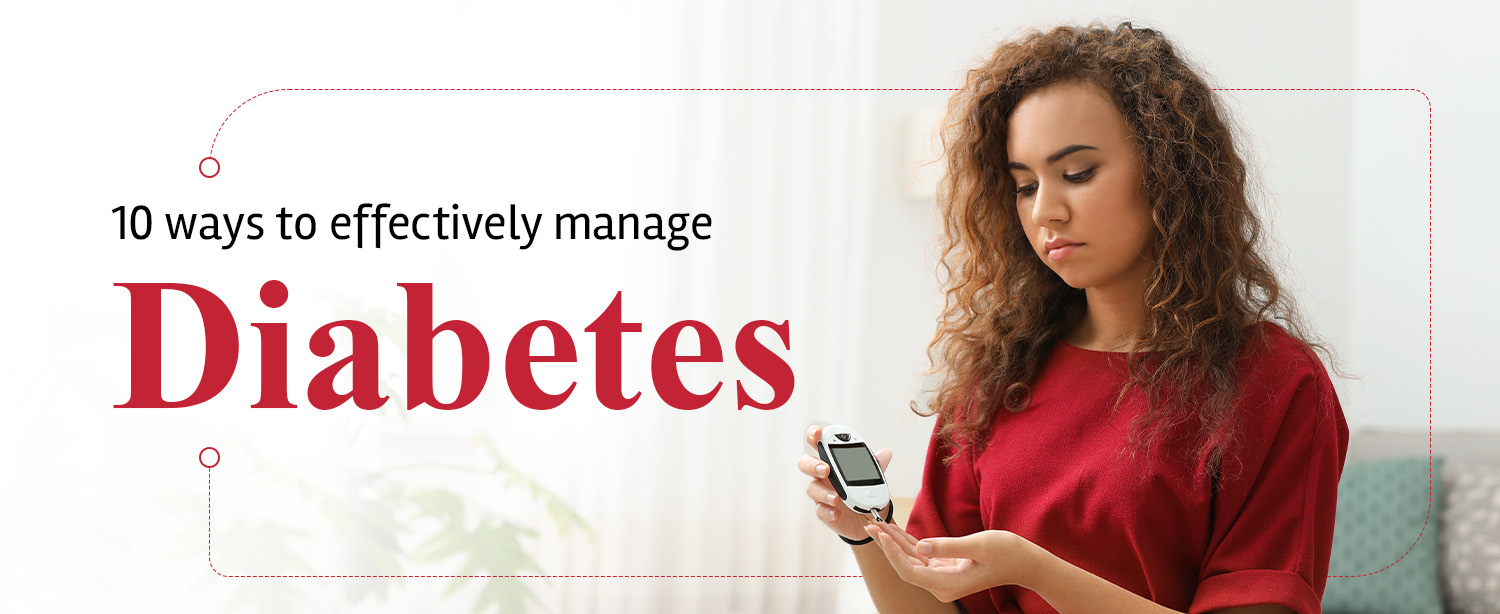With an estimated 8.7% of adults in India between the ages of 20 and 70 having diabetes, the disease is a growing challenge in India. The rising prevalence of this condition is driven by a combination of factors that include rapid urbanization, sedentary lifestyles, obesity, unhealthy diets, tobacco and alcohol use, and increasing life expectancy. One in six people with diabetes in the world is from India and this number is increasing at a fast pace. A large portion of the burden associated with diabetes can be prevented or postponed by making healthy lifestyle changes.
How to manage your Diabetes?
If you’re one of the millions of Indians who have diabetes, you should be aware that the best method to manage your condition is to constantly monitor any changes in your blood sugar levels. Diabetes management requires awareness. Knowing how to control your diabetes will increase your vitality and capacity for healing while lowering your risk of developing additional health issues like a heart attack, nerve damage, kidney failure, blindness, and gum disease. Here are some useful tips for managing your diabetes and maintaining normal blood sugar levels.
- Eat healthy meals
Healthy eating is the foundation of healthy living, with or without diabetes. You must understand how foods impact your blood sugar levels if you have diabetes. This not only includes what you eat, but also how much you consume and the combinations of different foods you consume. - Exercise regularly
Another important aspect of your diabetes control strategy is physical activity. Your muscles use sugar (glucose) as energy while you workout. Your body uses insulin more effectively when you exercise frequently. - Medication
When diet and exercise alone are insufficient for managing your diabetes, insulin and other diabetes medications are intended to lower your blood sugar levels. However, when and how much of these medications are taken will determine their efficacy. Consult your doctor for further assistance. - Quit alcohol
In order to counterbalance dropping blood sugar levels, the liver often releases stored sugar. However, if your liver is preoccupied with alcohol metabolism, it might not be able to provide the necessary increase to your blood sugar level. Alcohol use can cause low blood sugar immediately after consumption. - Menstruation and menopause
Blood sugar levels can significantly fluctuate throughout the week leading up to and during menstruation due to changes in hormone levels. Talk to your doctor to establish a plan that’s right for your body and its hormonal changes at different life stages. - Manage stress better
Your blood sugar may rise if you’re anxious because of the hormones your body creates in reaction to ongoing stress. Discover new ways to cope better with stress. - Control your numbers
Recognize your blood pressure and cholesterol levels by regular health checkups and take steps to keep them in control. - Schedule regular physicals
Diabetic patients must visit their doctor every three to six months. Apart from your blood sugar levels, tests are also arranged to keep a tab on your kidney functions and eye health. - Take care of your teeth
Diabetes patients frequently experience gum disease (also known as periodontal disease) and other oral health issues. Visit your dentist every six months and let them know you have diabetes if you want to help prevent these issues. - Pay attention to your feet
Every day, look for redness, blisters, cracks, dry skin, and numbness in your feet. Also check the bottom of your feet regularly. If your feet are hurting or numbing, or if a cut or sore doesn’t go away in a few days, call your doctor immediately.
Diabetes care is a lifelong responsibility. Following your diabetes treatment plan takes round-the-clock commitment and helps reduce your risk of life-threatening complications. Play an active role in your diabetes care and enjoy a healthier future.
Diabetes treatment at Kokilaben Dhirubhai Ambani Hospital
Consult our team of diabetologists, nutritionists and mental care experts who offer supportive diabetes care. We help you make healthy lifestyle changes to manage diabetes better and also recommend medications if required. Meet our specialists who offer compassionate, patient-centric care with highly trained diabetologists. Experts at our Centre for Diabetes and Bariatric Surgery will help you control your blood sugar levels and manage your diabetes levels.


